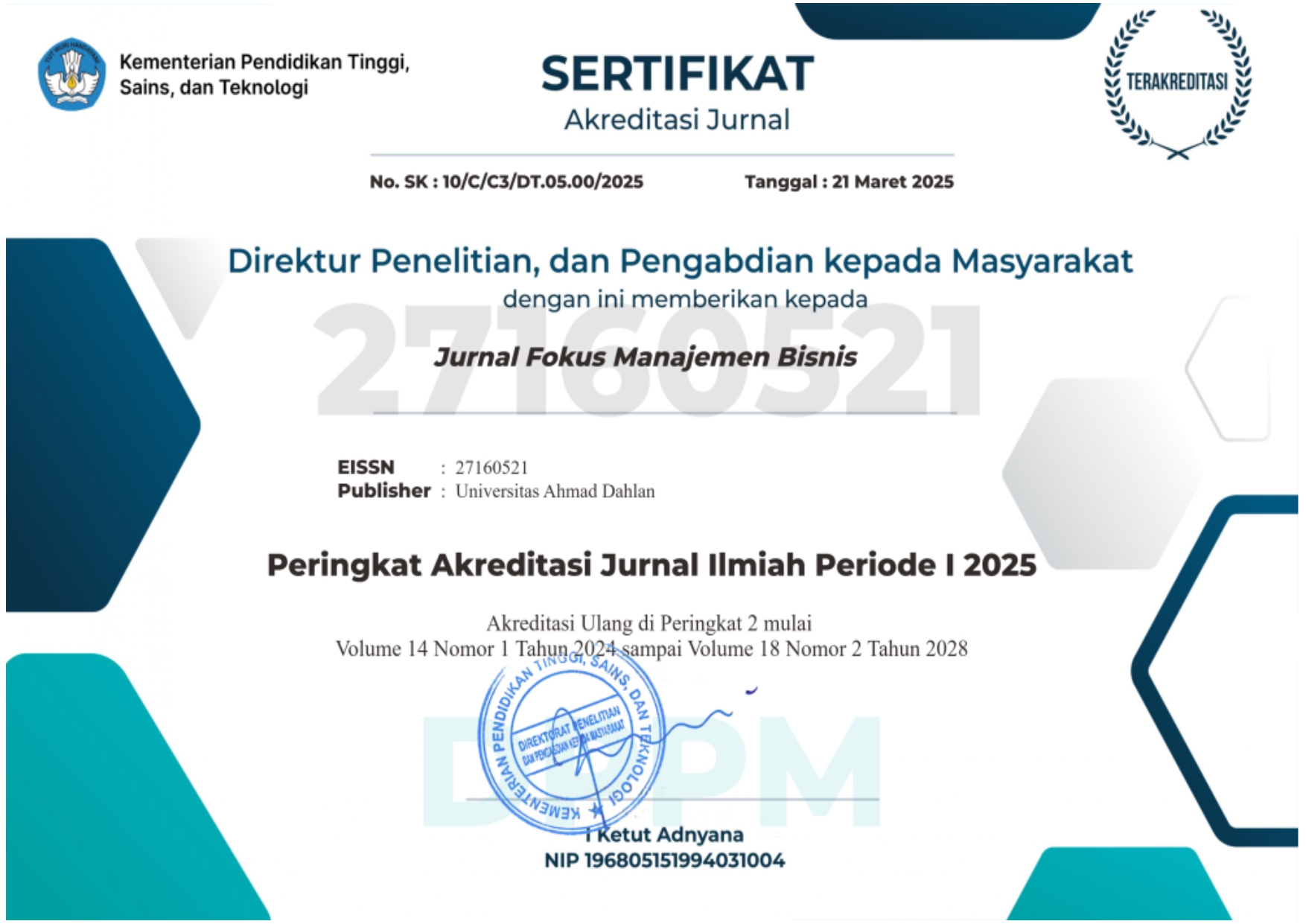PENGARUH ORIENTASI PASAR PADA KUALITAS LAYANAN, KEPUASAN PELANGGAN, DAN LOYALITAS PELANGGAN SPEEDY PT TELKOM DI KOTA YOGYAKARTA
DOI:
https://doi.org/10.12928/fokus.v4i2.1355Keywords:
market orientation, service, quality, customer satisfaction, customer loyaltyAbstract
Market orientation is believed to be a source of competitive advantage that is difficult to imitate by competitors. This study aimed to determine the effect of market orientation on service quality, customer satisfaction, and customer loyalty Speedy PT Telkom in the city of Yogyakarta. The population in this study are all PT Telkom Speedy customers who live in city of Yogyakarta. Data analysis methods used in this study include descriptive and inferential methods, inferential method used is path analysis. The results of goodness of fit model shows that the X2 value, the value of CFI, and RMSEA values have had a good match. Based on the analysis of data shows that the determinants of customer loyalty Telkom Speedy Yogyakarta is a market orientation quality of service, and customer satisfaction.Downloads
Published
2014-09-30
How to Cite
Abdillah, I., & Adhilla, F. (2014). PENGARUH ORIENTASI PASAR PADA KUALITAS LAYANAN, KEPUASAN PELANGGAN, DAN LOYALITAS PELANGGAN SPEEDY PT TELKOM DI KOTA YOGYAKARTA. Jurnal Fokus Manajemen Bisnis, 4(2), 101–110. https://doi.org/10.12928/fokus.v4i2.1355
Issue
Section
Articles
License
Authors who publish with this journal agree to the following terms:Â
- Authors retain copyright and grant the journal right of first publication with the work simultaneously licensed under a Creative Commons Attribution License that allows others to share the work with an acknowledgment of the work's authorship and initial publication in this journal.
- Authors are able to enter into separate, additional contractual arrangements for the non-exclusive distribution of the journal's published version of the work (e.g., post it to an institutional repository or publish it in a book), with an acknowledgment of its initial publication in this journal.
- Authors are permitted and encouraged to post their work online (e.g., in institutional repositories or on their website) prior to and during the submission process, as it can lead to productive exchanges, as well as earlier and greater citation of published work (See The Effect of Open Access).






